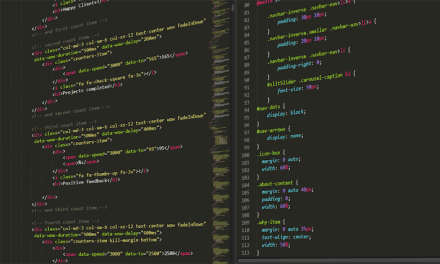Table of Contents
- Introduction
- The Role of AI in HR: Enhancing Recruitment and Selection Processes
- AI-powered Performance Management: Revolutionizing Employee Evaluation
- Leveraging AI for Employee Engagement and Retention Strategies
- Ethical Considerations in AI Adoption for HR: Balancing Automation and Human Touch
- Q&A
- Conclusion
“Unlocking the Potential: Navigating AI in HR for Limitless Possibilities by 2024”
Introduction
“Exploring AI in HR: A Comprehensive Guide to Opportunities and Applications by 2024” is a comprehensive guide that delves into the various opportunities and applications of artificial intelligence (AI) in the field of human resources (HR). This guide provides valuable insights and analysis on how AI can revolutionize HR practices and enhance efficiency in areas such as recruitment, employee engagement, performance management, and talent development. By examining the potential impact of AI in HR, this guide aims to equip HR professionals and organizations with the knowledge and understanding needed to leverage AI technologies effectively by the year 2024.
The Role of AI in HR: Enhancing Recruitment and Selection Processes

Artificial intelligence (AI) has become an integral part of various industries, and human resources (HR) is no exception. In recent years, AI has been revolutionizing the HR landscape, particularly in the area of recruitment and selection processes. This article aims to provide a comprehensive guide to the opportunities and applications of AI in HR by 2024, with a specific focus on its role in enhancing recruitment and selection processes.
One of the key benefits of AI in HR is its ability to streamline and automate the recruitment process. Traditional recruitment methods often involve manual screening of resumes and conducting multiple rounds of interviews. This can be time-consuming and labor-intensive for HR professionals. However, with the advent of AI, these tasks can be automated, saving valuable time and resources.
AI-powered recruitment tools can analyze resumes and job applications, identifying the most suitable candidates based on predefined criteria. These tools use natural language processing and machine learning algorithms to assess candidates’ skills, qualifications, and experience. By automating the initial screening process, HR professionals can focus their efforts on evaluating the shortlisted candidates, resulting in a more efficient and effective recruitment process.
Furthermore, AI can also assist in the selection process by conducting video interviews and assessments. Video interviewing platforms powered by AI can analyze candidates’ facial expressions, tone of voice, and body language to provide insights into their personality traits and suitability for the role. This can help HR professionals make more informed decisions when selecting candidates for further rounds of interviews or job offers.
Another area where AI can significantly enhance recruitment and selection processes is through the use of predictive analytics. By analyzing vast amounts of data, AI algorithms can identify patterns and trends that can predict the success of candidates in specific roles. This can help HR professionals make data-driven decisions when selecting candidates, reducing the risk of hiring the wrong person for the job.
Moreover, AI can also play a crucial role in improving diversity and inclusion in the recruitment process. Traditional recruitment methods often suffer from unconscious biases, leading to a lack of diversity in the workforce. AI-powered tools can help mitigate these biases by focusing solely on the qualifications and skills of candidates, disregarding factors such as gender, race, or age. This can result in a more diverse and inclusive workforce, which has been proven to enhance creativity, innovation, and overall organizational performance.
However, it is important to note that while AI can greatly enhance recruitment and selection processes, it should not replace human judgment entirely. HR professionals still play a vital role in assessing candidates’ cultural fit, soft skills, and other intangible qualities that cannot be measured by AI algorithms. Therefore, a balanced approach that combines the power of AI with human expertise is crucial for successful recruitment and selection processes.
In conclusion, AI has the potential to revolutionize the HR industry, particularly in the area of recruitment and selection processes. By automating tasks, analyzing data, and mitigating biases, AI can streamline and enhance the efficiency and effectiveness of these processes. However, it is important to remember that AI should be used as a tool to support HR professionals, rather than replace them. By embracing the opportunities and applications of AI in HR, organizations can stay ahead of the curve and attract top talent in an increasingly competitive job market.
AI-powered Performance Management: Revolutionizing Employee Evaluation
Artificial intelligence (AI) has become a game-changer in various industries, and human resources (HR) is no exception. With its ability to automate processes, analyze data, and make predictions, AI has the potential to revolutionize HR practices. One area where AI is making a significant impact is performance management, transforming the way employee evaluation is conducted.
Traditionally, performance management has been a time-consuming and subjective process. HR professionals would manually collect and analyze performance data, often relying on their own biases and interpretations. This approach was not only inefficient but also prone to errors and inconsistencies. However, with the advent of AI, performance management is undergoing a major transformation.
AI-powered performance management systems leverage machine learning algorithms to automate and streamline the evaluation process. These systems can collect and analyze vast amounts of data, including employee performance metrics, feedback, and even sentiment analysis from various sources such as emails, chat logs, and social media. By doing so, AI can provide a more comprehensive and objective assessment of an employee’s performance.
One of the key advantages of AI-powered performance management is its ability to provide real-time feedback. Traditional performance evaluations often occur on an annual or semi-annual basis, leaving employees with little opportunity for improvement or course correction. AI, on the other hand, can continuously monitor and analyze performance data, providing timely feedback and coaching to employees. This not only helps employees identify areas for improvement but also enables managers to address performance issues proactively.
Another significant benefit of AI in performance management is its potential to eliminate bias. Human evaluators are inherently prone to biases, whether conscious or unconscious. AI, on the other hand, can analyze data objectively, without being influenced by personal opinions or prejudices. This can help ensure a fair and unbiased evaluation process, promoting diversity and inclusion within organizations.
AI-powered performance management systems can also help identify patterns and trends in employee performance. By analyzing large datasets, AI can identify correlations between certain behaviors, skills, or traits and performance outcomes. This information can be invaluable in identifying high-potential employees, predicting future performance, and making data-driven decisions regarding promotions, training, and development opportunities.
Furthermore, AI can assist in identifying skill gaps and recommending personalized learning and development plans for employees. By analyzing performance data and comparing it to desired outcomes, AI can identify areas where employees may need additional training or support. This can help organizations optimize their training programs and ensure that employees have the necessary skills to succeed in their roles.
However, it is important to note that AI-powered performance management is not without its challenges. Privacy concerns, data security, and ethical considerations are some of the key issues that organizations need to address when implementing AI in HR practices. It is crucial to ensure that data collection and analysis are conducted in a transparent and ethical manner, with proper safeguards in place to protect employee privacy.
In conclusion, AI-powered performance management has the potential to revolutionize employee evaluation. By automating and streamlining the process, providing real-time feedback, eliminating bias, and identifying patterns and trends, AI can help organizations make more informed decisions regarding performance, development, and talent management. However, it is essential to address the ethical and privacy considerations associated with AI implementation. As AI continues to evolve, it is crucial for HR professionals to stay informed and adapt their practices to leverage the full potential of this transformative technology.
Leveraging AI for Employee Engagement and Retention Strategies
Artificial intelligence (AI) has become a game-changer in various industries, and human resources (HR) is no exception. Leveraging AI for employee engagement and retention strategies has the potential to revolutionize the way organizations manage their workforce. By harnessing the power of AI, HR professionals can enhance employee satisfaction, improve retention rates, and ultimately drive organizational success.
One of the key areas where AI can make a significant impact is in employee engagement. Traditional methods of measuring engagement, such as surveys and interviews, can be time-consuming and often fail to capture the true sentiment of employees. AI-powered sentiment analysis tools, on the other hand, can analyze large volumes of data from various sources, including emails, social media, and chat logs, to provide a more accurate and real-time understanding of employee engagement levels.
AI can also play a crucial role in personalized employee experiences. By analyzing data on individual employees’ preferences, interests, and work patterns, AI algorithms can provide tailored recommendations for learning and development opportunities, career paths, and even work schedules. This level of personalization can significantly enhance employee satisfaction and motivation, leading to higher levels of engagement and retention.
Furthermore, AI can help HR professionals identify potential flight risks and take proactive measures to retain valuable talent. By analyzing historical data on employee turnover, performance, and engagement, AI algorithms can identify patterns and indicators that suggest an employee may be considering leaving the organization. Armed with this information, HR professionals can intervene early, offering personalized incentives or development opportunities to encourage the employee to stay.
Another area where AI can be instrumental is in streamlining the recruitment and onboarding processes. AI-powered chatbots can handle initial candidate screening, answering frequently asked questions, and providing information about the organization and job requirements. This not only saves HR professionals time but also ensures a consistent and efficient candidate experience.
Once a candidate is hired, AI can assist in the onboarding process by providing personalized training materials and resources. By analyzing the skills and knowledge gaps of new hires, AI algorithms can recommend relevant training modules and resources to help them quickly get up to speed. This not only accelerates the onboarding process but also ensures that new employees feel supported and empowered from day one.
Moreover, AI can help HR professionals identify skill gaps within the organization and develop targeted training programs to address them. By analyzing data on employee performance, certifications, and training history, AI algorithms can identify areas where additional training or upskilling is needed. This enables HR professionals to design training programs that are tailored to the specific needs of the workforce, ensuring that employees have the skills they need to succeed in their roles.
In conclusion, leveraging AI for employee engagement and retention strategies offers immense opportunities for organizations to enhance their workforce management practices. From analyzing employee sentiment to providing personalized experiences and streamlining recruitment and onboarding, AI can revolutionize the way HR professionals engage and retain talent. By harnessing the power of AI, organizations can create a more engaged and satisfied workforce, leading to improved retention rates and ultimately driving organizational success. As we look ahead to 2024, it is clear that AI will continue to play a pivotal role in shaping the future of HR.
Ethical Considerations in AI Adoption for HR: Balancing Automation and Human Touch
Artificial intelligence (AI) has become an integral part of various industries, and human resources (HR) is no exception. As organizations strive to streamline their HR processes and enhance efficiency, AI has emerged as a powerful tool. However, the adoption of AI in HR raises ethical considerations that need to be carefully addressed. This article aims to explore the ethical considerations in AI adoption for HR and the importance of balancing automation with the human touch.
One of the primary ethical concerns in AI adoption for HR is the potential for bias. AI systems are trained on historical data, which may contain inherent biases. If these biases are not identified and addressed, they can perpetuate discrimination in the HR processes. For example, if an AI system is trained on data that shows a preference for male candidates, it may inadvertently discriminate against female applicants. To mitigate this risk, organizations must ensure that their AI systems are regularly audited and monitored for bias.
Another ethical consideration is the impact of AI on job displacement. As AI technology advances, there is a fear that it may replace human jobs, leading to unemployment and economic inequality. While AI can automate certain HR tasks, such as resume screening and scheduling interviews, it is crucial to strike a balance between automation and the human touch. HR professionals bring valuable skills like empathy, intuition, and critical thinking, which cannot be replicated by AI. Organizations should focus on using AI to augment HR professionals’ capabilities rather than replacing them entirely.
Privacy and data protection are also significant ethical concerns in AI adoption for HR. AI systems require access to vast amounts of data to make accurate predictions and decisions. However, this data often includes sensitive personal information about employees and job applicants. Organizations must ensure that they have robust data protection measures in place to safeguard this information. Additionally, transparency and consent are essential when using AI in HR. Employees and job applicants should be informed about the use of AI in HR processes and have the option to opt-out if they are uncomfortable with it.
The potential for AI to perpetuate surveillance and control is another ethical consideration. AI systems can monitor employees’ behavior, such as their internet usage, email communications, and even facial expressions. While this data can provide valuable insights for HR, it also raises concerns about privacy and autonomy. Organizations must strike a balance between using AI for monitoring and respecting employees’ privacy rights. Clear policies and guidelines should be established to ensure that AI is used responsibly and ethically.
Finally, the lack of transparency and explainability in AI algorithms is a significant ethical concern. AI systems often make decisions based on complex algorithms that are difficult to understand and explain. This lack of transparency can lead to a loss of trust and accountability. Organizations must ensure that their AI systems are explainable, meaning that the decision-making process can be understood and justified. This transparency is crucial for employees and job applicants to have confidence in the fairness and integrity of AI-driven HR processes.
In conclusion, while AI offers numerous opportunities for HR, it is essential to address the ethical considerations associated with its adoption. Bias, job displacement, privacy, surveillance, and transparency are some of the key ethical concerns that organizations must navigate. By striking a balance between automation and the human touch, organizations can leverage AI to enhance HR processes while upholding ethical standards. Ultimately, the responsible and ethical use of AI in HR will contribute to a more inclusive and equitable workplace.
Q&A
1. What is the book “Exploring AI in HR” about?
The book “Exploring AI in HR” provides a comprehensive guide to the opportunities and applications of AI in the field of human resources by 2024.
2. What does the book cover?
The book covers various aspects of AI in HR, including its potential applications, benefits, challenges, and future trends.
3. Who is the target audience for this book?
The book is aimed at HR professionals, managers, and anyone interested in understanding and leveraging AI in the HR domain.
4. What time frame does the book focus on?
The book focuses on exploring the opportunities and applications of AI in HR specifically by the year 2024.
Conclusion
In conclusion, “Exploring AI in HR: A Comprehensive Guide to Opportunities and Applications by 2024” provides valuable insights into the potential of AI in the field of human resources. The guide explores various opportunities and applications of AI, highlighting its potential to streamline HR processes, improve decision-making, and enhance employee experience. By 2024, AI is expected to play a significant role in transforming HR practices, leading to increased efficiency and effectiveness in talent acquisition, employee engagement, performance management, and other HR functions. This comprehensive guide serves as a valuable resource for HR professionals and organizations looking to leverage AI to drive innovation and success in the HR domain.




